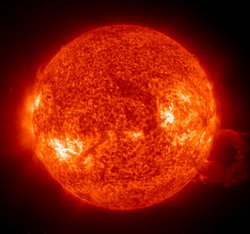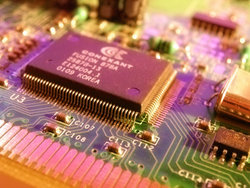Difference between revisions of "Fundamental resources"
(→Energy) |
(→Energy) |
||
| Line 27: | Line 27: | ||
*[[Nuclear power|Nuclear]]: fission and the likelihood of even greater power from fusion in the future | *[[Nuclear power|Nuclear]]: fission and the likelihood of even greater power from fusion in the future | ||
*[[Geothermal power|Geothermal]]: shallow geothermal heat pumps, volcanic related geothermal and 'deep' geothermal or 'hot-dry-rock' | *[[Geothermal power|Geothermal]]: shallow geothermal heat pumps, volcanic related geothermal and 'deep' geothermal or 'hot-dry-rock' | ||
| − | *[[Hydro-electric power generation|Hydro-electric]]: Reservoir-fed and | + | *[[Hydro-electric power generation|Hydro-electric]]: Reservoir-fed and simple river-power |
*[[Biomass power generation|Biomass]]: vegetable oil, compost methane, sustainable wood, burning of organic waste, animal dung and rubbish | *[[Biomass power generation|Biomass]]: vegetable oil, compost methane, sustainable wood, burning of organic waste, animal dung and rubbish | ||
Revision as of 02:13, 21 December 2005
The following items are the three fundemental resources of society:
Contents
Material
Between air, water and the twenty most abundant elements in the earth's crust we can make almost all the things that mankind requires, including:
- Buildings and construction materials
- Vehicles
- Industrial machines
- Robots
- Computers and electronic products
- Food and drinking water
These reserves of material are not going to run out - processing and using up the entire earth's crust would be quite a challenge for even the most wasteful societies. Of course we are not advocating wasteful processes just because material is plentiful; one aspect of technological progress is the increasing efficiency of design and manufacturing - doing more with less.
It should be noted that there are other trace elements required for certain things such as agriculture, but by their nature only correspondingly small amounts of these substances are required.
Recycling is almost certain to become far more widespread than it is now, further reducing the burden of having to process new material for creating goods and infrastructure. Product design will become more sympathetic to the recycling process which will soon become highly automated.
Energy
We have these major sources of energy available to us, in no particular order and not including fossil fuels that we currently rely on for the majority of our energy provision:
- Solar: photovoltaic, solar thermal, solar chimney, solar power satellite (prospective)
- Wind: Land-based wind turbine, off-shore wind turbine, jet-stream sky windmills (prespective)
- Ocean: wave, tidal, ocean currents
- Nuclear: fission and the likelihood of even greater power from fusion in the future
- Geothermal: shallow geothermal heat pumps, volcanic related geothermal and 'deep' geothermal or 'hot-dry-rock'
- Hydro-electric: Reservoir-fed and simple river-power
- Biomass: vegetable oil, compost methane, sustainable wood, burning of organic waste, animal dung and rubbish
These sources of power far exceed our current and likely future energy requirements; as well as improvements in the efficiency of our energy consumption becoming a significant factor in our energy use, due to improved design and increasing cultural awareness.
Intelligence
Human intelligence
Some people may suggest this as the one fundemental resource that really is in short supply...
We just haven't been using it very effectively so far. Currently with activities such as design and engineering, only relatively small groups of people collaborate in any meaningful way. The development of most things whether they be products, services, utilities or modern agricultural processes tend to be done behind closed doors. This means that compared to what is possible, progress is sporadic and slow. With the involvement of all interested parties and using open and transparent development processes progress could be far quicker and more efficient. This would also significantly reduce the huge duplication of effort that happens today.
As well as potentially increasing the effectiveness of our current intelligence, total intelligence is growing constantly.
Worldwide education is becoming more pervasive and of better quality, meaning that a larger percentage of the population can effectively participate in developing solutions. The world population is still increasing too which increases the pool of intelligence and the proposed advanced automation will result in freeing a greater percentage of the population to work on vital solutions to hard problems if they so wish.
Machine intelligence
On the machine side, intelligence is increasing exponentially and will do so for the forseable future. Not only are the number of information processing units multiplying rapidly, but the relative computing power of each one is increasing exponentially too.
On top of that algorithms and programming techniques are improving all the time to make more effective use of the hardware, as are distributed computing techniques which are able to make use of idle processor time between connected units.



